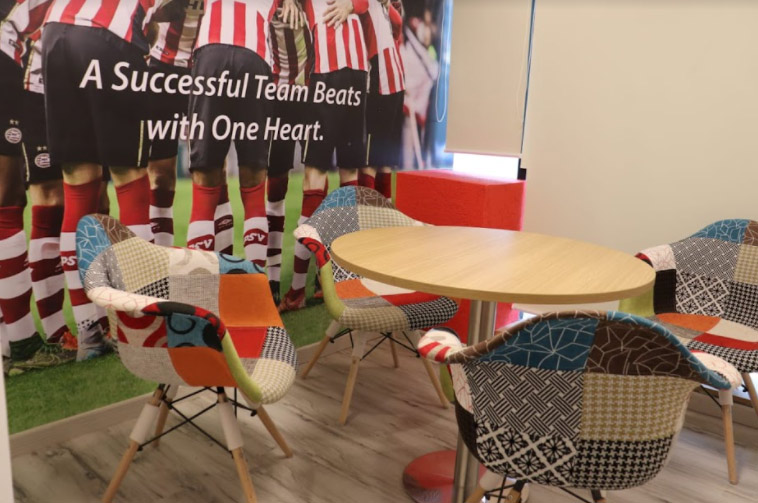Work From Home (#WFH) is no longer an unusual concept. It has proven beneficial for corporates as well as their employees. That said, it has its downsides too.
Keeping yourself motivated when you are the only one working and other family members are watching movies or the maid is asking for instructions can be challenging. Balancing work and personal life can also become harder.
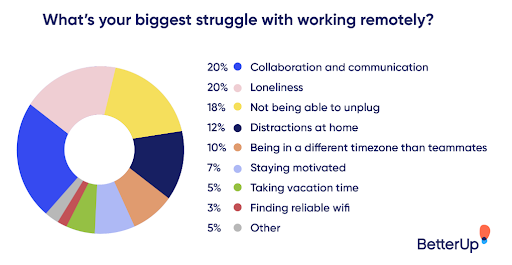
Source: Better Up
For team managers and corporates, having team members follow a WFH concept may mean that they have to do without access to tools like high-speed Wi-Fi, printers, etc. At the same time, having experienced the benefits of remote working, not everyone wants to move back to the traditional workspace.
💡 Are you looking for Coworking space in Gurgaon, Noida or Delhi?. We are just a call away.
Call now: 08999 828282
Many organizations are struggling to bring employees back to work and coworking has emerged as the ideal solution. Here are 5 ideas to smoothen the transition from WFH to Coworking.
5 Ideas To Seamlessly Transition From WFH to Coworking
- Find A Coworking Space Close To Residential Areas
- Choose A Space That Is Easily Accessible
- Prioritize Employee-Centric Facilities
- Create A Transition Plan
- Design Standard Operating Procedures (SOPs)
1. Find A Coworking Space Close To Residential Areas
One of the biggest WFH benefits is the time saved in commuting to work. It has given employees more time to spend with their families and made them more productive. Hence, coworking spaces need to be closer to residential areas of the city. It’s one of the reasons for the fast growth in the number of coworking spaces.
A study found that 64% of coworking space providers consider their location to be their most important USP.
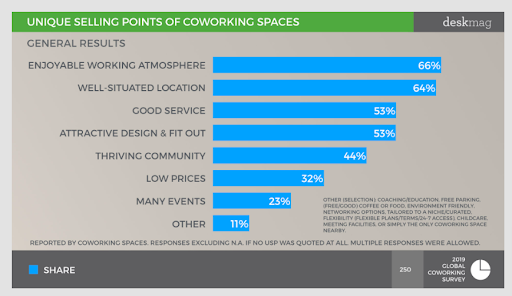
Source: Coworking Statistics
Ideally, look for a coworking space provider with multiple coworking spaces spread out across the city. This can empower your employees to choose coworking locations that are closest to their homes while centralizing your lease management.
2. Choose A Space That Is Easily Accessible
Accessibility is as important as location when choosing a coworking space. While it may be close enough for some employees to work, others may have to drive or ride the metro. For those walking to work, ensuring that the roads are well-lit and clean is a priority.
Similarly, for people driving to work, having adequate parking is essential. This is also important for clients who may come to the coworking space for meetings. Further, you need to make sure, it is at a walkable distance from a metro station or on a road where public transport is easily available.
3. Prioritize Employee-Centric Facilities
Printers and meeting rooms may help with productivity but they don’t do much for employee happiness levels. A study showed that happy employees can be as much as 20% more productive as compared to unhappy employees. Being happy in the workplace for employees translates to feeling heard and valued. Hence, when you’re comparing shared workplace solutions, make sure you pay adequate attention to your employee’s needs.
They need ergonomic furniture, a kitchenette with a microwave to heat lunch, a coffee machine, lockers, a vibrant cafe and so on. Having access to a gym, pet-friendly amenities and access to after-work networking events are valuable perks too.
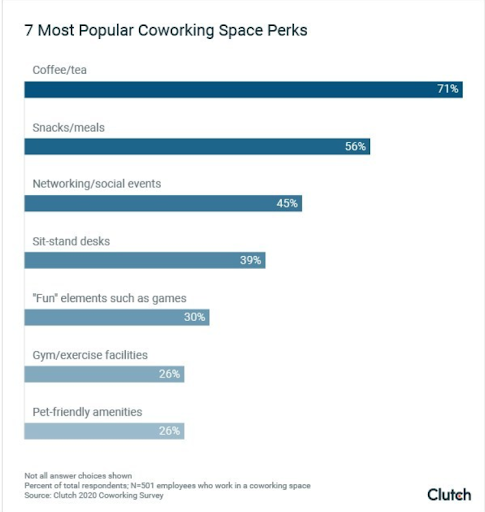
Source: PR NEWS WIRE
💡 Are you looking for Coworking space in Gurgaon, Noida or Delhi?. We are just a call away.
Call now: 08999 828282
4. Create A Transition Plan
To ensure that your team experiences maximum coworking model benefits, you need a plan. This transition plan must be well-thought-out and designed keeping your employee’s work commitment and well-being in consideration. You then need to inform your employees of the plan and make them aware of what to expect from the environment in the coworking space.
You can show your employees photographs of the selected coworking spaces as well as share detailed plans of the location, layouts and available infrastructure. Some coworking spaces will also be willing to give your employees a tour of the offices so that they can get a clearer picture of what working in the space will be like before they actually sit down at a desk.
5. Design Standard Operating Procedures (SOPs)
While technology-related issues are resolved, some WFH challenges carry forward to coworking spaces too. Communication and collaboration are probably the most important. Some employees may also find it difficult to access certain company resources.
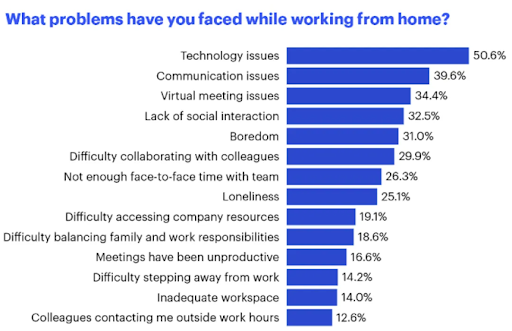
Source: Zdnet
The solution lies in creating SOPs that put all stakeholders on the same page. Giving employees step-by-step instructions and reporting structures can streamline processes and minimize work interruptions. This should ideally cover all aspects of the business such as operations. HR, legal, accounts, etc.
💡 Are you looking for Coworking space in Gurgaon, Noida or Delhi?. We are just a call away.
Call now: 08999 828282
Finding The Right Coworking Space
As the coworking space demand grows, so does the number of options available. According to a newspaper report, 2021 alone saw the coworking sector grow by almost 5 million sq ft. With so many options to choose from, finding the right coworking space becomes important. You need a space that meets your infrastructural needs as well as employee comfort requirements.
If your company is based in Delhi, Noida or Gurgaon, The Office Pass (TOP) has the ideal coworking space. Choose from one of the 14 locations. Each coworking office is easily accessible, safe, secure and designed to boost productivity while giving members the opportunity to become part of a professional community. To know more, reach out to us at 08999 828282.


